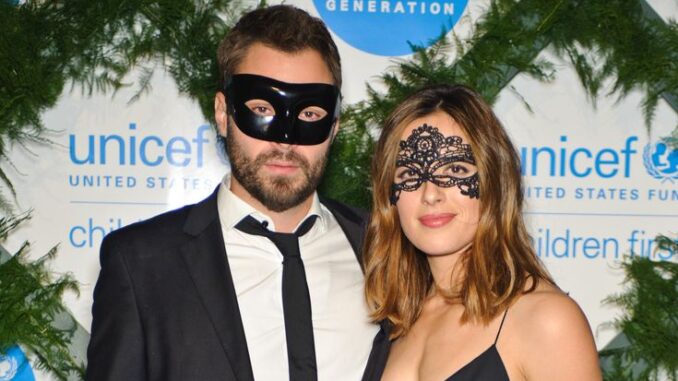
When it comes to love stories on television, especially in crime dramas, most romances burn fast and fade quickly. But in Chicago P.D., the relationship between Adam Ruzek and Kim Burgess defies the usual formula. It’s messy, unpredictable, and often painful—but also enduring, vulnerable, and achingly human. Over more than a decade of the show’s run, their love story has become a quiet heartbeat behind the chaos of the Intelligence Unit. A love not defined by perfection, but by resilience.
From the beginning, it was clear that Ruzek and Burgess had chemistry. Their flirtation was casual at first—two attractive, charismatic officers finding moments of connection between the madness of police work. But it didn’t take long for those moments to deepen. Their early relationship, though passionate, was filled with complications. They were both new to the unit, navigating their roles, trying to figure out who they were as individuals. And as anyone who has ever tried to balance love with ambition knows, timing is everything. For Ruzek and Burgess, the timing was always a little bit off.
They got engaged. Then they broke up. They tried again. Then they walked away. Again and again, they circled each other—never fully in sync, but never fully apart. Through it all, there was an undeniable thread of loyalty, of love that never really died. Even when they were with other people, even when their paths diverged, their connection lingered. You could see it in their eyes during scenes of shared danger. You could feel it in the pauses between their arguments. There was always unfinished business.

But what makes their relationship truly compelling isn’t just the romance—it’s the growth.
Adam Ruzek started the series as a hot-headed, impulsive cop. He was good at his job but struggled with maturity, especially when it came to relationships. Burgess, in contrast, was more grounded, more cautious with her heart. As the seasons progressed, we watched Ruzek stumble through heartbreak, loss, and self-doubt—and we saw how Burgess challenged him, not just emotionally, but morally. She expected more from him, and eventually, he began to expect more from himself.
The turning point in their story came not with a kiss, but with a crisis.
When Burgess was abducted and nearly killed in one of the show’s most brutal episodes, Ruzek’s world shattered. His desperation, his fear, and ultimately his relief when he found her alive revealed the depth of his love. It wasn’t about passion anymore—it was about devotion. About the kind of bond that doesn’t fade with time or trauma.
And then came Makayla.
When Burgess adopted Makayla, a young girl left orphaned by violence, it changed everything. She was no longer just a detective—she was a mother. And that shift tested her relationship with Ruzek in ways neither of them could have predicted. Could he step up? Was he ready to be a father? Could their fragile romance withstand the weight of such a life-altering decision?
At first, Ruzek hesitated. Not because he didn’t love them—but because he wasn’t sure he was enough. But slowly, he proved that love is not always loud. Sometimes, it’s in the everyday choices. Picking up Makayla from school. Staying overnight when Burgess needed support. Being present, even when it’s inconvenient.
One of the most moving moments came when Ruzek offered to adopt Makayla with Burgess—not as a boyfriend, not as a hero, but as a co-parent. It wasn’t a romantic gesture. It was something deeper. A sign that his love had matured into something enduring. Something rooted in family.
Still, their road has never been smooth. There have been missteps, doubts, silences that last too long. But that’s what makes this relationship resonate so deeply with fans. Because it feels real. It’s not fairy tale perfection—it’s two people who keep choosing each other, even when it hurts.
The writing of their arc has been subtle but powerful. The show never forces a reunion or manufactures drama just for ratings. Instead, it lets their story unfold with the rhythms of real life—sometimes fast, sometimes unbearably slow. Sometimes full of hope, sometimes full of distance.
